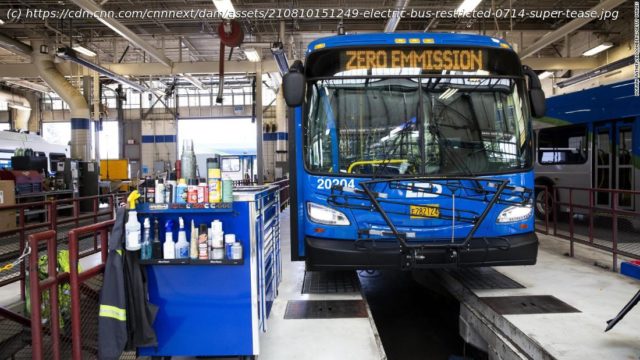The Senate passed a massive $1.2 trillion infrastructure package Tuesday, marking a big bipartisan achievement after months of negotiations.
The legislation, which still needs to be passed by the House, would provide $550 billion in new federal spending over five years. The new investments would reach far beyond the traditional infrastructure projects for roads, bridges and railroads. There’s also money to improve Americans’ access to broadband, for electric school buses and to start addressing racial discrimination in infrastructure. The bill would also change the tax reporting requirements for cryptocurrencies and delay a controversial drug rebate rule — both included as ways to help pay for the investments. Still, the bill leaves out a number of other nontraditional infrastructure investments that President Joe Biden had called for. His original $2.25 trillion proposal, known as the American Jobs Plan, included money for caregiving for aging Americans and for workforce training — provisions that Republicans argued did not belong in an infrastructure bill. RELATED: Here’s how Biden’s infrastructure plan would impact key areas of American life The bipartisan bill also does not include corporate tax hikes, like Biden first proposed to pay for the spending. Instead, lawmakers found other ways to help cover the cost, like imposing new Superfund fees and repurposing some Covid relief funds approved by Congress during the pandemic. But an estimate from the nonpartisan Congressional Budget Office found that those provisions would not completely pay for the bill and the legislation would add $256 billion to the federal budget deficit over 10 years. Despite that analysis, the bill’s authors say the new spending would be offset by a combination of savings and new revenue that total $519 billion, only some of which is reflected in the CBO score since the agency is limited in what it can include in its formal report. Here are five things in the bill that might surprise you: 1. Broadband upgrade The legislation would provide a $65 billion investment in improving the nation’s broadband infrastructure, according to the bill text. It’s a smaller investment than the $100 billion Biden initially wanted. The legislation aims to help lower the price households pay for internet service by requiring federal funding recipients to offer low-cost affordable plans, by creating price transparency and by boosting competition in areas where existing providers aren’t providing adequate service. It would create a permanent federal program to help more low-income households access the internet, according to the White House. 2. Electric school buses The bill makes a big investment in electric vehicles and the infrastructure needed to use them. It would help school districts across the country buy clean, American-made, zero-emission buses, aiming to replace the yellow school bus fleet by providing $5 billion for zero-emission and clean buses and $2.5 billion for ferries. The bill would invest $7.5 billion to build a nationwide network of plug-in electric vehicle chargers along highways to enable long-distance travel, as well as within communities where people live, work and shop. 3. Addressing racial discrimination in infrastructure The legislation contains $1 billion to reconnect communities, disproportionately Black neighborhoods, that were divided by highways and other infrastructure, according to the White House. It would fund planning, design, demolition and reconstruction of street grids, parks or other infrastructure. Many Black homes, businesses and neighborhoods across the country were bulldozed in the 1950s and 1960s to clear space for interstate highways, displacing many residents and entrepreneurs and cutting others off from the rest of the community. Biden’s original plan called for a $20 billion investment to redress historic inequities and ensure new projects advance opportunity, racial equity and environmental justice. 4. New tax regulations on cryptocurrencies A provision tucked away at the end of the Senate bill would impose new tax reporting requirements on cryptocurrency transactions — a move that congressional estimates say could raise $28 billion in new revenue to help pay for the infrastructure package. The legislation could have sweeping ramifications for cryptocurrency investors and innovators. RELATED: It’s official: Cryptocurrency is infrastructure The provision appears aimed at cryptocurrency exchanges that help investors trade bitcoin and other virtual currencies. But opponents argue that the measure is written so broadly it could also unintentionally affect others in the cryptocurrency ecosystem — from software developers to bitcoin miners, who aren’t considered financial brokers in any practical sense.






